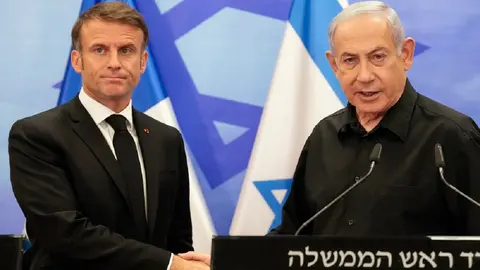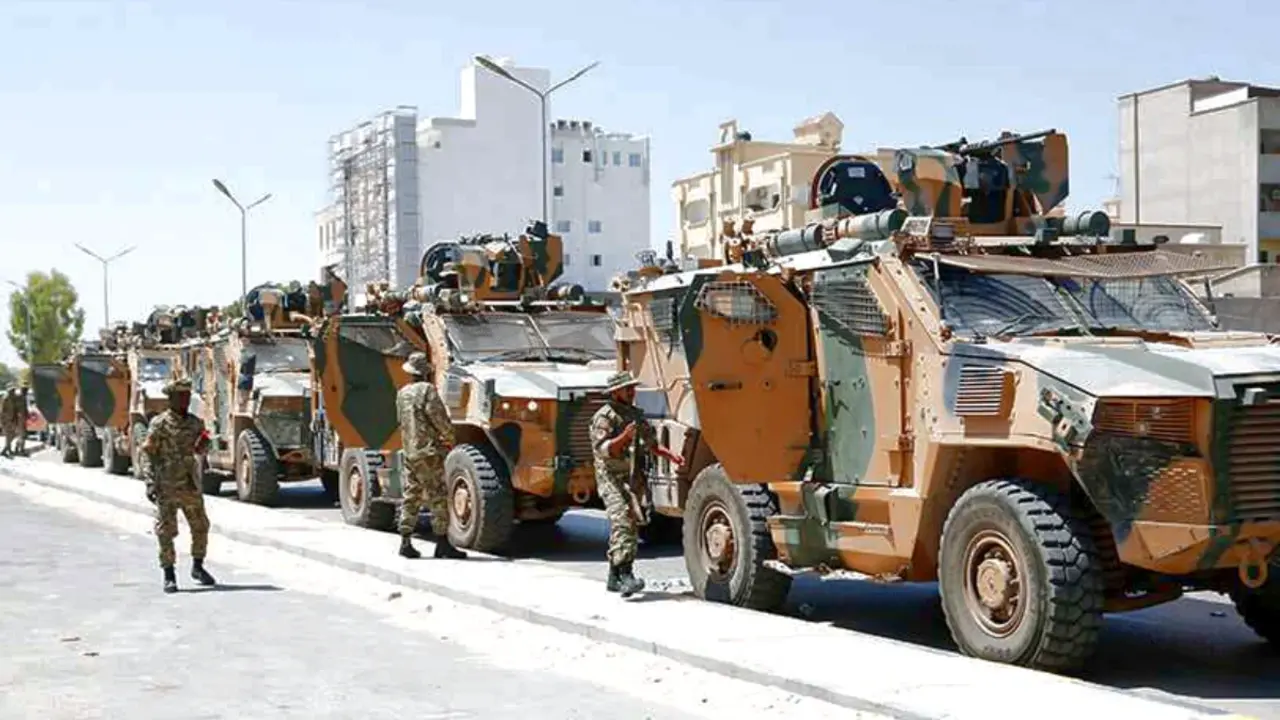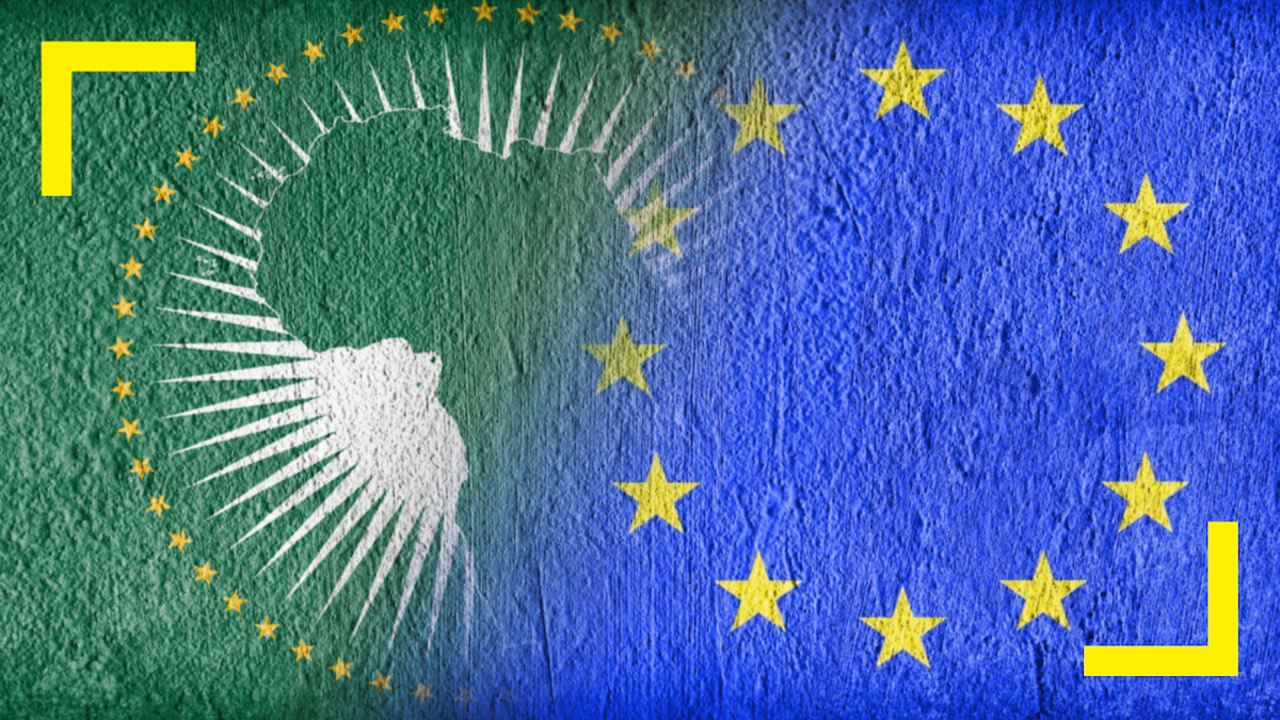Saudi Arabia calls for halt to escalation in Gaza as Israel intensifies attacks on Hamas leadership

The international community is intensifying its efforts to stop the ongoing war between Israel and Hamas that has claimed the lives of thousands of civilians on both sides and threatens to escalate regionally. Following visits by Western leaders such as Joe Biden, Rishi Sunak and Emmanuel Macron, and the Cairo Peace Summit - which ended without any agreement due to differences - Saudi Crown Prince Mohammed bin Salman has called for a halt to the violence.
During a call with the US president, Bin Salman stressed the need to find solutions to end attacks on civilians and infrastructure, as well as measures to prevent forced displacement, according to the Saudi Press Agency (SPA).
He also stressed the need for peace and stability, stopping the escalation and not allowing it to expand in a way that affects the security of the region. In this regard, he stressed the need to respect international humanitarian law, calling for lifting the siege on Gaza, preserving basic services and allowing the entry of humanitarian and medical aid.
The Saudi Crown Prince also explained the importance of restoring "the path of peace" to ensure that the Palestinian people obtain "their legitimate rights and achieve a just and comprehensive peace". Biden, for his part, expressed his appreciation to the Saudi leader for the efforts he has made to de-escalate and prevent escalation in the region.
During the conversation, they discussed the Israeli military offensive on the Gaza Strip and ongoing efforts to end the conflict that began after a surprise Hamas attack on Israel on 7 October. This incursion by land, sea and air left more than 1,400 people dead in Israel, as well as thousands wounded and internally displaced. This invasion also pushed Jerusalem into a war against the terrorist group in order to eliminate it completely and free more than 200 hostages held in Gaza.
Trigger warning: This video contains disturbing content.
— Bring Them Home Now (@bringhomenow) October 25, 2023
On Saturday, October 7, our beloved ones were abducted. They were taken from their home, brutally pulled from their beds, forcibly dragged out of hiding corners, thrown into trucks and motorcycles with hands tied, beaten,… pic.twitter.com/frpnThpV4z
Since that day, the Israeli army has bombed Hamas targets in Gaza, successfully eliminating several Hamas leaders, but also killing civilians, whom Hamas uses as human shields. According to the Ministry of Health of the Palestinian enclave - controlled by the Islamist organisation - 5,000 people have died as a result of Israeli bombing.
In the last few hours, the Israeli army has eliminated the Hamas commander of the northern battalion of Jan Younis, Taysir Mubasher, in an air attack, according to a joint communiqué with the Shin Bet intelligence service. As EFE recalls, Mubasher is the ninth senior military officer of the al-Qasam Brigades, the armed wing of Hamas, to be killed in Israeli attacks since the conflict began on 7 October.
IDF publishes footage of Navy forces foiling Hamas's attempt to send divers to infiltrate into Israel via the sea yesterday. The IDF says two terrorists were killed, despite earlier reports suggesting higher numbers. The video also shows a strike on the compound the divers set… pic.twitter.com/cKPwP26ZtM
— Emanuel (Mannie) Fabian (@manniefabian) October 25, 2023
Overnight operations were also carried out against Hamas tunnels, command centres, weapons stores and launchers of mortar shells and anti-tank missiles. In the past two weeks alone, the terrorist group has fired 7,000 missiles at Israel, according to the army. Yesterday, Hamas launched the largest rocket attack on central and southern Israel since 7 October, hitting cities such as Tel Aviv and Ashdod.
In the West Bank, meanwhile, tensions are rising as the conflict intensifies. Since 7 October, the Israeli army has carried out several anti-terrorist raids in cities such as Jenin in an attempt to prevent armed factions in the area from carrying out an attack similar to that of Hamas. According to Palestinian officials, more than 1,400 people have been arrested and more than 90 killed in the West Bank over the past two weeks.
Israeli security forces conducted a counterterrorism operation in Jenin and arrested two suspects. During the raid, heavy exchanges of fire were reported with Palestinian militants in Jenin hurling explosive devices.
— Moshe Schwartz (@YWNReporter) October 25, 2023
In response, an Israeli drone struck the militants. No… pic.twitter.com/VbpMEl3TQH
Iran mobilises its proxy groups in the Middle East
In addition to the situation in Gaza and the West Bank, the Islamic Republic of Iran-backed Lebanese Shi'ite group Hezbollah is launching attacks on Israeli territory, prompting a strong response from the Israel Defence Forces (IDF) and the evacuation of thousands of people from northern Israel. Recently, leaders of Hezbollah, Hamas and Palestinian Islamic Jihad have met in Beirut to decide the next steps in the war along with other Iranian-backed groups.
IRGC’s Fars News reporting that #Hezbollah’s chief Seyed Hassan Nasrallah has once again met with Saleh al-Arouri, deputy head of #Hamas politburo, and Ziyad al-Nakhalah, Palestinian Islamic Jihad chief. #IRGCterrorists https://t.co/xv0BMUMhMz
— Kasra Aarabi (کسری اعرابی) (@KasraAarabi) October 25, 2023
Tehran has also mobilised its militias in Syria and Yemen against Israel. In recent hours, missiles have again been launched from Syria into Israeli territory, prompting the IDF to attack infrastructure belonging to the Syrian army, including mortar launchers.
Yemen's Houthi rebels, backed by the Iranian regime, also launched several missiles at Israel last week, but they were intercepted. In this regard, The Wall Street Journal has revealed that Saudi Arabia, which has no relations with Israel, intercepted one of the missiles headed for the Hebrew country. The US shot down the rest from its warship USS Carney.
Saudis intercept an Iranian/Yemeni missile heading toward a target to Israel. That’s pretty historic https://t.co/ZTWNrLwm1L
— Anshel Pfeffer אנשיל פפר (@AnshelPfeffer) October 24, 2023
In recent months the US has been working for a peace deal between Israel and Saudi Arabia that would transform the Middle East and establish a bloc against Iran. However, the brutal Hamas attack and the ensuing war have thwarted such plans that could bring stability and calm to the area, as well as further Israel's regional integration.
Senior US officials, such as Antony Blinken, have pointed to possible normalisation as the motive for the attack. Also, as MEMRI reports, senior Iranian officials and leaders of Palestinian resistance groups link the brutal raid to an attempt to thwart normalisation between Saudi Arabia and Israel.
Americas Coordinator: José Antonio Sierra










